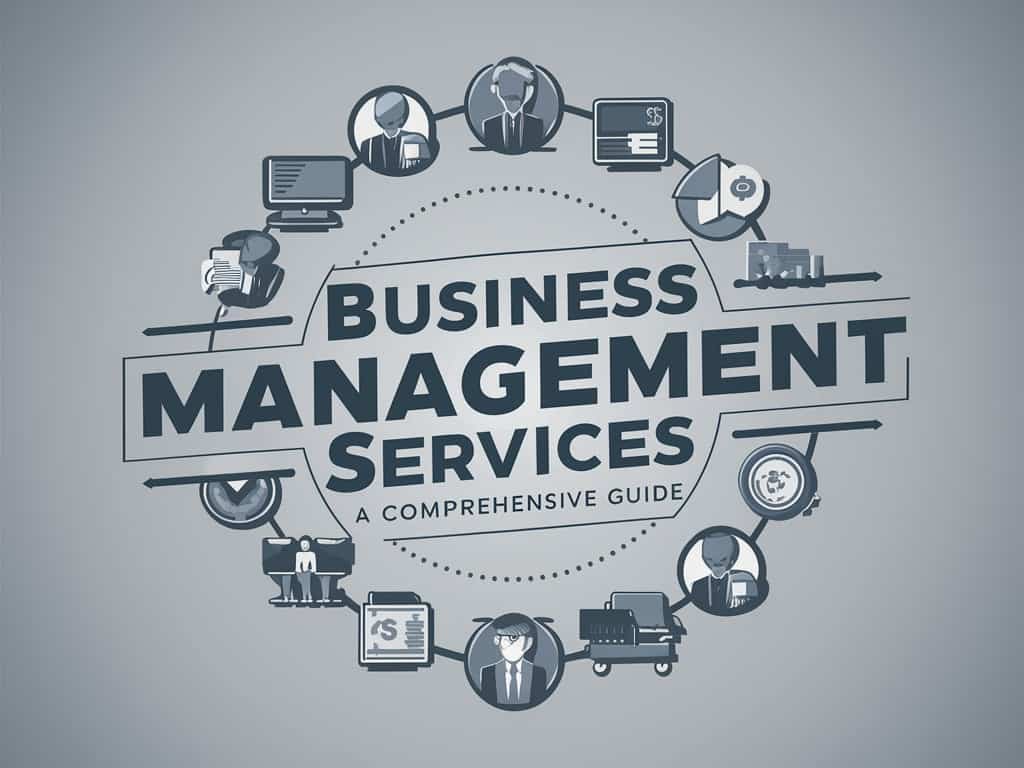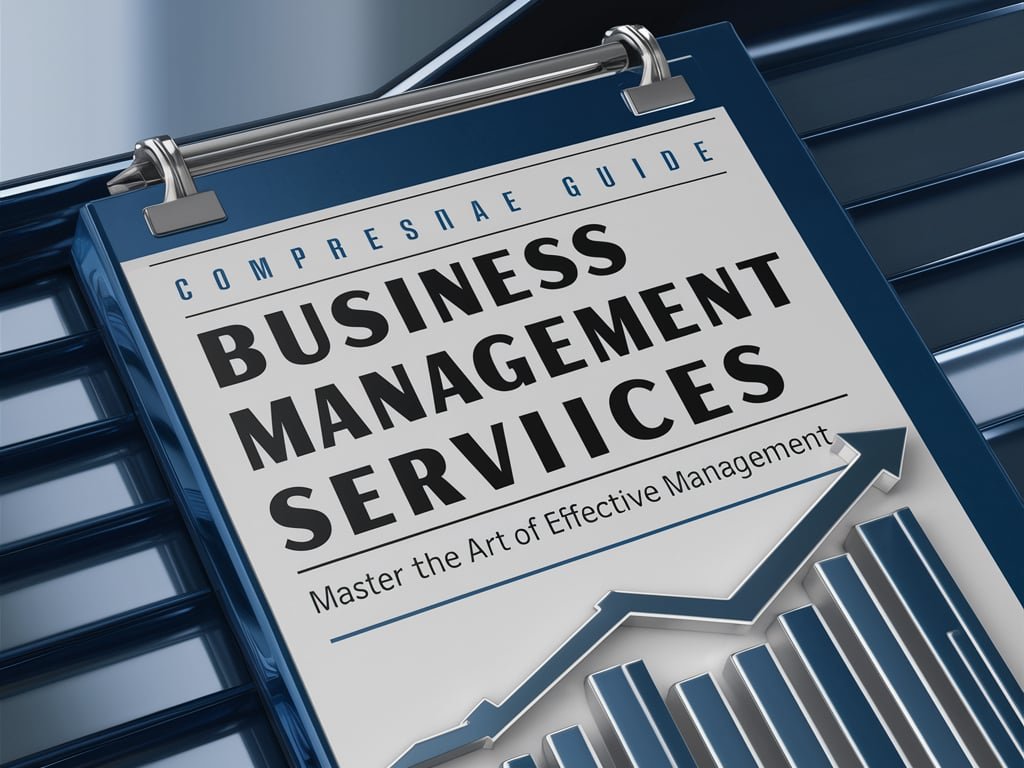Business management services are crucial for companies looking to optimize their operations, streamline processes, and achieve long-term growth. Whether you’re a small startup or a large corporation, having access to professional management services can make a significant difference in your efficiency, profitability, and overall success.
In this article, we’ll delve into what business management services are, the various types available, and how they can benefit your organization. We’ll also include a table comparing different service providers to help you make informed decisions. This guide will provide insightful content to ensure you understand the role of business management services in modern enterprises.
What Are Business Management Services?
Business management services encompass a wide range of support functions that help companies manage their day-to-day operations. These services can be outsourced or handled by in-house teams, depending on the size and needs of the business. They typically include financial management, human resources, IT support, marketing, operations, and strategy consulting.
Business management services are designed to assist businesses in achieving their goals by improving efficiency, reducing costs, and ensuring that operations run smoothly. They provide expertise and resources that might not be available internally, allowing businesses to focus on their core competencies.
Types of Business Management Services
There are various types of business management services available, each focusing on specific areas of a business’s operations. Here are some of the most common types:
1. Financial Management Services
Financial management is a critical aspect of any business, regardless of its size or industry. Financial management services help businesses with budgeting, accounting, tax preparation, payroll, and financial planning. These services ensure that a company’s finances are managed efficiently, reducing the risk of errors and financial mismanagement.
Key Functions:
- Bookkeeping and accounting
- Budgeting and financial planning
- Tax compliance and preparation
- Payroll management
- Financial reporting and analysis
2. Human Resources (HR) Management Services
HR management services focus on managing a company’s workforce, ensuring that the right people are hired, trained, and retained. These services can include recruitment, employee onboarding, performance management, and compliance with labor laws.
Key Functions:
- Recruitment and staffing
- Employee training and development
- Performance management
- Payroll and benefits administration
- Compliance with labor laws and regulations
3. IT Management Services
Information technology is a cornerstone of modern business operations. IT management services provide businesses with the support they need to maintain their IT infrastructure, from managing networks and servers to ensuring cybersecurity and data protection.
Key Functions:
- Network and server management
- Cybersecurity and data protection
- Software development and maintenance
- IT support and helpdesk services
- Cloud computing and storage solutions
4. Marketing and Branding Services
Marketing is essential for attracting and retaining customers. Marketing and branding services help businesses develop and implement marketing strategies that effectively promote their products or services. These services may include market research, digital marketing, branding, public relations, and advertising.
Key Functions:
- Market research and analysis
- Branding and positioning
- Digital marketing (SEO, social media, email marketing)
- Public relations and communication
- Advertising campaigns
5. Operations Management Services
Operations management services focus on improving the efficiency of a company’s operations. This can include optimizing supply chains, improving production processes, managing inventory, and ensuring that products and services are delivered on time.
Key Functions:
- Supply chain management
- Process optimization
- Quality control and assurance
- Inventory management
- Logistics and distribution
6. Strategic Management Consulting
Strategic management consulting services provide businesses with expert advice on how to achieve long-term success. Consultants work with business leaders to develop strategies that align with their goals, assess market opportunities, and identify potential risks.
Key Functions:
- Business strategy development
- Market analysis and opportunity assessment
- Risk management and mitigation
- Organizational restructuring
- Leadership development and coaching
Table: Comparison of Business Management Services Providers
| Provider | Key Services Offered | Strengths | Pricing | Customer Ratings |
|---|---|---|---|---|
| Deloitte | Financial, HR, IT, Strategy Consulting | Global reach, Expertise | Premium | ★★★★★ |
| PwC | Financial, Strategy, Operations | Comprehensive service offerings | Premium | ★★★★★ |
| ADP | Payroll, HR, Compliance | Specialization in HR services | Moderate | ★★★★☆ |
| Accenture | IT, Digital, Strategy | Innovation, Technology-focused | High | ★★★★★ |
| KPMG | Financial, IT, Risk Management | Global expertise, Compliance | Premium | ★★★★☆ |
| Zenefits | HR, Payroll, Benefits | User-friendly platform, HR focus | Affordable | ★★★★☆ |
| SAP | ERP, IT, Operations | Technology solutions, Integration | High | ★★★★☆ |
| HubSpot | Marketing, Sales, CRM | Marketing automation | Varies | ★★★★☆ |
The Benefits of Business Management Services
Business management services offer numerous benefits to companies of all sizes. By leveraging the expertise of specialized service providers, businesses can improve their efficiency, reduce costs, and focus on their core activities. Below are some key benefits:
1. Improved Efficiency and Productivity
One of the main advantages of business management services is the improvement in efficiency and productivity. Outsourcing certain functions, such as accounting, HR, or IT, allows businesses to focus on their core competencies, while experts handle the specialized tasks. This can lead to better use of resources, faster decision-making, and increased productivity.
2. Cost Savings
Hiring in-house staff for every business function can be expensive, particularly for small businesses and startups. Outsourcing business management services can reduce operational costs by eliminating the need for full-time employees and minimizing overhead expenses. Additionally, service providers often offer scalable solutions that can grow with your business, allowing you to pay only for the services you need.
3. Access to Expertise
Business management service providers are experts in their respective fields, offering specialized knowledge and experience that may not be available within your organization. By outsourcing these services, you gain access to a team of professionals who can provide valuable insights and help you navigate complex challenges.
4. Risk Management and Compliance
Managing risk and ensuring compliance with regulations is critical for any business. Business management service providers can help you stay up-to-date with the latest laws and regulations, reducing the risk of legal issues and financial penalties. They can also implement risk management strategies to protect your business from potential threats.
5. Scalability and Flexibility
As your business grows, your needs will change. Business management services offer scalable solutions that can adapt to your changing requirements. Whether you need additional support during peak seasons or want to expand into new markets, service providers can offer flexible solutions that meet your evolving needs.
How to Choose the Right Business Management Services Provider

Choosing the right business management services provider is a crucial decision that can impact your company’s success. Here are some factors to consider when making your choice:
1. Understand Your Business Needs
Before selecting a service provider, it’s essential to assess your business needs and identify which areas require support. Consider your company’s goals, challenges, and priorities, and determine which services will help you achieve your objectives.
2. Evaluate Expertise and Experience
Look for providers with a proven track record of success in your industry. Consider their expertise, experience, and reputation, and check client testimonials and case studies to gauge their effectiveness. Choose a provider that understands your industry’s unique challenges and can offer tailored solutions.
3. Assess Pricing and Value
Cost is an important consideration, but it shouldn’t be the only factor. Instead of focusing solely on price, evaluate the value the provider offers. Consider the quality of services, the level of support, and the potential return on investment. Look for providers that offer transparent pricing and flexible plans that fit your budget.
4. Consider Scalability
Your business needs may change over time, so it’s important to choose a provider that can scale with you. Look for providers that offer flexible solutions and can adapt to your business’s growth and changing requirements.
5. Check for Customization Options
Every business is unique, and your management services should be tailored to your specific needs. Look for providers that offer customizable solutions and can work with you to develop a plan that aligns with your goals.
Conclusion

Business management services are essential for companies looking to streamline their operations, improve efficiency, and achieve long-term success. Whether you need support with financial management, HR, IT, marketing, or strategic consulting, there are numerous service providers available to help you reach your goals.
By understanding your business needs, evaluating potential providers, and choosing the right services, you can optimize your operations, reduce costs, and focus on growing your business. The comparison table provided in this article offers a quick reference to some of the top service providers, helping you make an informed decision.
Investing in business management services is an investment in your company’s future, ensuring that you have the resources and expertise needed to thrive in a competitive market.



